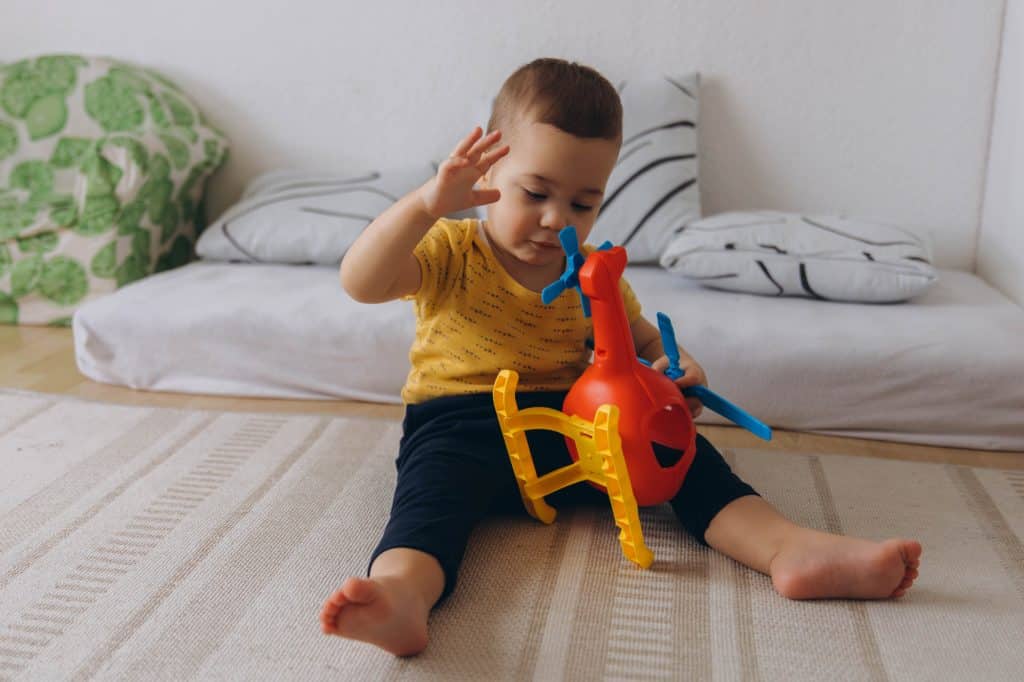Table of Contents
Helicopter parenting, characterised by excessive involvement in a child’s life, can have serious consequences on a child’s development. Parents who hover over their children, making decisions for them and solving their problems, prevent children from learning essential life skills.
Helicopter parenting harms children by undermining their independence, limiting their ability to cope with challenges, and damaging their self-confidence.
This overprotective style of parenting stems from good intentions – parents want to keep their children safe and help them succeed. However, the constant monitoring and intervention can lead to anxiety, poor decision-making skills, and reduced resilience in children. Children need space to make mistakes, face consequences, and develop their own problem-solving abilities.
Research shows that children of helicopter parents often struggle with emotional regulation and have difficulty handling failure. They may become overly dependent on external validation and lack the inner resources to navigate life’s ups and downs. Giving children age-appropriate freedom and responsibilities is vital for their healthy emotional and psychological growth.
Understanding Helicopter Parenting
Helicopter parenting represents an approach to child-rearing characterised by excessive involvement and control. Parents who hover closely over their children’s activities and decisions can undermine the development of independence and resilience.
Defining Helicopter Parenting
Helicopter parenting refers to a style where parents are overly focused on their children’s experiences and problems. The term emerged in the early 1990s when psychologists observed parents “hovering” like helicopters over their children. These parents typically take too much responsibility for their children’s experiences and outcomes.
This parenting approach involves excessive protection and direction, with parents solving problems that children could handle independently. While parental involvement is important, helicopter parents cross the boundary from helpful guidance to harmful micromanagement.
Research suggests this style often stems from anxiety about children’s futures or fears about safety in modern society. Some parents adopt this approach after witnessing their own parents’ detachment and vowing to be more involved with their children.
Key Characteristics of Helicopter Parents
Helicopter parents display several distinctive behaviours that set them apart from parents who provide appropriate guidance. They make decisions for their children rather than allowing them to choose for themselves. This might include selecting friends, activities, or even career paths.
These parents rush to solve problems immediately, depriving children of the chance to develop problem-solving skills. They frequently communicate with teachers and coaches about grades, playing time, or perceived unfairness.
Helicopter parents often complete tasks their children could manage, such as homework, chores, or resolving conflicts with peers. They may struggle with setting appropriate boundaries and feel excessive worry when not directly supervising their children’s activities.
Many monitor their children’s whereabouts, communications, and social media constantly. They can become emotionally overinvolved, treating their child’s failures as their own personal disappointments.
Types of Parental Involvement
Not all intensive parenting qualifies as harmful helicopter parenting. Supportive involvement includes providing guidance while allowing children to make age-appropriate decisions. These parents offer advice but respect their children’s autonomy to choose or make mistakes.
Controlling involvement, the hallmark of helicopter parenting, features parents who dictate choices and prevent children from experiencing natural consequences. This type of control can manifest academically (completing assignments), socially (managing friendships), or emotionally (preventing discomfort).
Some parents exercise situational involvement, adapting their approach based on circumstances. They might become more directive during significant transitions or when children face genuine dangers.
Cultural factors strongly influence parenting styles, with some societies valuing greater parental control than others. What appears as helicopter parenting in one culture might represent normal parental duty in another cultural context.
Negative Effects on Child Development
Helicopter parenting significantly harms children’s developmental processes in several key areas. The excessive control and supervision stunts crucial life skills, causing both immediate and long-term challenges.
Impact on Independence and Autonomy
Children of helicopter parents often struggle to develop basic self-sufficiency skills. When parents rush to solve every problem, children miss valuable opportunities to learn how to navigate challenges independently.
These children typically display delayed development in age-appropriate tasks like dressing themselves, preparing simple meals, or managing their own schedules. A study published in the Journal of Child and Family Studies found that over-parented children showed markedly lower independence scores compared to peers with balanced parental supervision.
The effects become increasingly apparent as children grow. By primary school, these children may struggle with simple self-care tasks that classmates handle routinely.
The lack of autonomy creates a dependency cycle that becomes harder to break with time. Children begin to doubt their abilities and automatically seek adult intervention rather than attempting solutions themselves.
Hindrance of Confidence and Coping Mechanisms
Helicopter parenting prevents children from developing healthy risk assessment skills. When parents remove all obstacles, children miss chances to build resilience through manageable failures.
Research from the University of Mary Washington found a direct link between helicopter parenting and decreased confidence levels in young adults. These individuals reported higher anxiety when facing new challenges and showed reluctance to attempt difficult tasks.
Without experiencing setbacks in safe environments, children fail to develop effective coping strategies. They may become easily frustrated or give up quickly when facing obstacles.
The absence of coping skills manifests in various ways: emotional outbursts when things don’t go as planned, avoidance of challenging situations, or complete dependency on others for emotional regulation. These patterns can persist into adulthood, affecting relationships and career advancement.
Obstacles to Decision-Making Skills
When helicopter parents make all choices for their children, they interfere with crucial decision-making development. Children need practice weighing options and facing consequences to build sound judgement.
The brain pathways involved in decision-making require repeated activation to strengthen. Overprotective parenting deprives children of these essential neural development opportunities.
A 2018 study in Developmental Psychology demonstrated that children with helicopter parents showed poorer decision-making abilities and higher indecisiveness when presented with choices. These children often sought validation before making even minor decisions.
The implications extend to academic performance, where these children may struggle with open-ended assignments or projects requiring initiative. They frequently ask for explicit instructions rather than thinking creatively.
By adolescence, these deficits can lead to significant paralysis when facing important life choices about education, careers, or relationships.
Consequences for Teen Mental Health
Teenagers with helicopter parents show higher rates of anxiety and depression. The constant message that they cannot handle life without parental intervention damages their self-perception.
A longitudinal study from the University of Queensland tracked 400 adolescents and found those with overprotective parents were 78% more likely to report clinical anxiety symptoms by age 16-17.
The psychological impact includes:
- Increased perfectionism and fear of failure
- Heightened stress when parents aren’t available to help
- Reduced sense of personal competence
- Difficulty setting healthy boundaries in relationships
Many teens with helicopter parents develop a distorted view of normal challenges, perceiving standard life difficulties as catastrophic. This warped perspective follows them into university or work environments.
The cycle often continues as these teens struggle to balance their desire for independence with their ingrained dependence on parental guidance and approval.
Psychological and Social Consequences
Helicopter parenting leads to serious psychological and social effects that impact children throughout their development and into adulthood. These consequences affect both mental wellbeing and the quality of relationships with parents and others.
Increased Anxiety and Anxiety Response
Children of helicopter parents show higher rates of anxiety disorders and problematic anxiety responses. When parents constantly hover and intervene, children miss crucial opportunities to develop healthy coping mechanisms.
The child’s brain doesn’t learn to manage normal stress responses independently, leading to heightened anxiety when facing challenges without parental help. This anxiety often manifests in physical symptoms like stomach aches, headaches, and sleep problems.
Research from the University of Mary Washington found that children with controlling parents reported significantly higher levels of depression and less satisfaction with life. These children tend to become risk-averse, fearing failure and avoiding challenges that might lead to growth.
The anxiety extends beyond childhood, with young adults struggling to make decisions or handle workplace stress without external validation or assistance.
Strained Relationships
Overparenting creates tension between parents and children that can damage their bond. Children may develop resentment toward parents who fail to recognise their need for autonomy and privacy.
These strained relationships often continue into adulthood. Young adults with helicopter parents report less open communication and more conflict with their parents than peers raised with more balanced approaches.
Children of helicopter parents also struggle to form healthy peer relationships. Having missed opportunities to navigate social conflicts on their own, they lack crucial social skills needed for building friendships.
Some become overly dependent on others to solve problems, while others withdraw from social situations altogether. This social awkwardness can persist into university and work environments, hampering professional development.
Narcissistic Delusion and Imagined Judgment
Helicopter parents often make decisions based on how they believe other parents will judge them. This focus on external validation creates an environment where children become extensions of the parent’s self-image rather than individuals.
Parents caught in this cycle may experience what psychologists call “narcissistic delusion” – believing their intensive involvement is essential for their child’s success when it actually serves the parent’s ego.
Children internalise this message, developing an unhealthy sense that they are constantly being evaluated. They become preoccupied with how others might judge them rather than developing intrinsic motivation.
This imagined judgment leads to perfectionism, fear of making mistakes, and difficulty accepting criticism. Children learn to value external approval over authentic self-expression.
The judgment cycle extends to social circles, where helicopter parents compare achievements and milestones, further feeding the competitive parenting culture that damages children’s psychological development.

